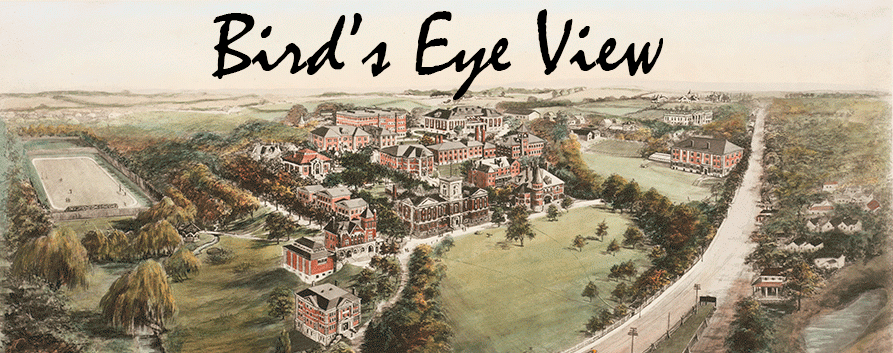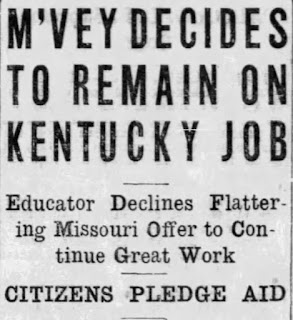A century ago this month, the University of Kentucky nearly lost its president. Having been in Kentucky less than four years, Frank LeRond McVey had to make a tough decision in July, 1921. The University of Missouri made the nationally recognized president with a Yale Ph.D. a very enticing offer to become their next president.
In his biography of McVey (Frank LeRond McVey and the University of Kentucky: A Progressive President and the Modernization of a Southern University, University Press of Kentucky, 2011) Eric Moyen notes that, "News of the (Missouri) job offer shocked many in Kentucky, and they expressed their fears in the local papers as McVey contemplated a move to Columbia. A deluge of telegrams and letters, along with numerous editorials and resolutions, revealed the immense respect and popularity McVey had earned...in Lexington."
The Louisville Times editorialized that, "Under his (McVey's) hand the University has broadened and strengthened, and if he stands by his task it will someday be an institution which will be of more value to the state than all of the fustian, outworn tommyrot about horses, women, manors and hospitality." A meeting of university professors unanimously issued a letter begging McVey "not to embarrass Kentucky by leaving" and pledging their "hearty support and cooperation."
 |
| President Frank LeRond McVey |
Apparently UK intended to match any salary offered by Missouri. And fortunately for Kentucky, Mabel McVey, the president's spouse, was less that keen on relocating to Missouri. Learning that Frank has reservations about the president's home in Missouri, Mabel wrote, "I shouldn't worry about Missouri if I were you - Certainly if they expect their president to live in a hole of a house the job is a hole of a job."
Thanks to Eric Moyen's superb biography of McVey, we know that his twenty-two years as UK's president were some of the most important years in UK's long history. He is recognized to this day as one of UK's greatest presidents. We should still be glad that he chose a century ago to remain in the Bluegrass.













